We are back in the fourth post of our series about Egypt’s Wadi El-Hitan Climate Change Museum in Fayoum.
In February 2017, I paid a visit to Wadi El-Hitan or the Whale valley in a quick visit to the beautiful Fayoum governorate.
In the first post of this series, we shared the history of Egypt’s fossilized Jurassic Park as well as part of its indoor museum. In the second post, we continued our visit to the very rich indoor museum in the valley. In the third post, we saw part of the very interesting outdoor museum in the desert.
In this part, I am focusing on the outdoor museum’s interior or rather exterior aka the desert where the outdoor museum is located aka the amazing and breathtaking Wadi El-Hitan as well as the way back to Wadi El-Rayan.
 |
| Inside Wadi El-Hitan Protectorate |
Aside from the priceless exhibits from millions of years ago, this place is like a haven for those who love desert nature and photography for real.
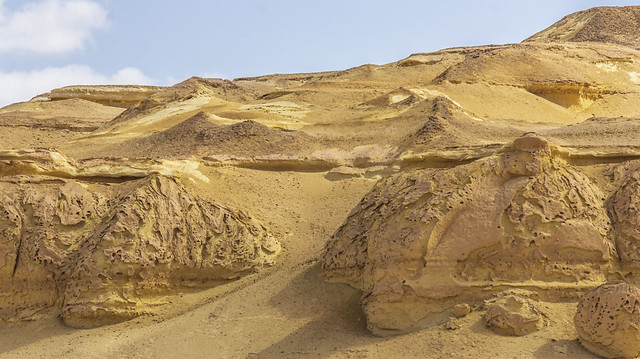 |
| Formations that were once part of a big continental ocean millions of years ago |
The formations that were once part of the prehistoric ocean bed make you feel small.
 |
| The black shales are there to remind us of the very old age of the formations |
It also makes you feel so young. I mean I look at the formation above and I wonder how many strata are there and from what age. I read once that this dark material appearing in the strata is called black shales and actually it got organic material and that this area was actually covered by water as far as I understood.
 |
| The hills behind hills |
It also transfers you to another world if you are into fantasy and sci-fi. I mean just look at this scene above and see the hills on the horizon.
 |
| It looks like an alien world somehow if you are a city person |
It is like a mix of Star Wars and Dunes if you are into Western Sci-fi. It also can remind you of the wild wild west.
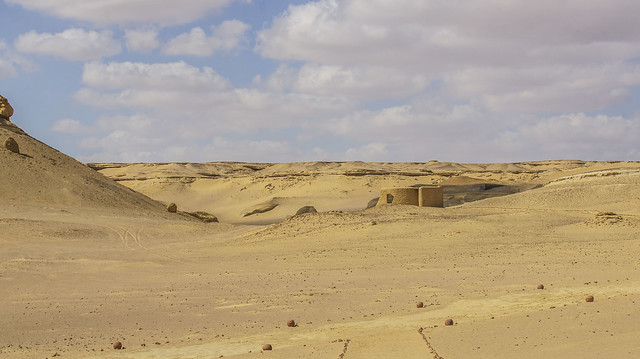 |
| One of the Wadi El-Hitan protectorate's buildings |
Again I do not understand why the Egyptian government does not give facilities to film studios to film in the Egyptian deserts like in Morocco, Jordan, UAE and lately Saudi Arabia.
 |
| Tracks and formations |
I do not understand it for real especially since we need foreign currency now.
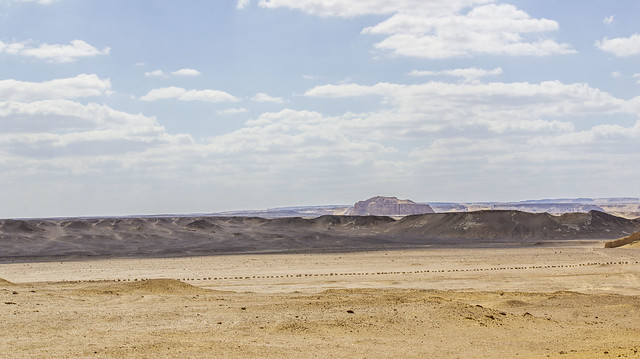 |
| Tracks, darker hills and distant hills |
Those scenes are just magical in their own way and I guess on that day I fell in love with desert photography.
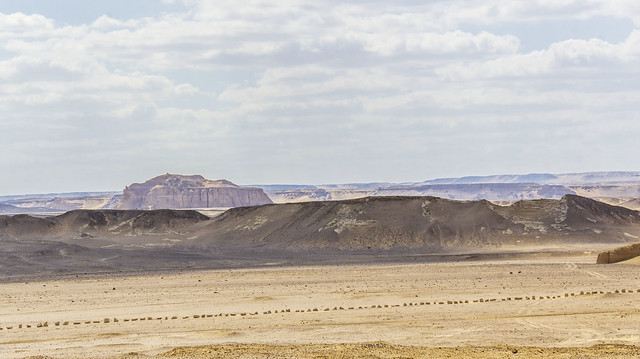 |
| Those hills remind me of the black desert's hill |
That darker material on those hills is actually iron quartz according to what I understood and what I was told during a visit to Egypt's black desert.
I mean you do not breathe such clean air or see such scenes as usual in big cities like Cairo.
 |
| A high formation but not for climbing |
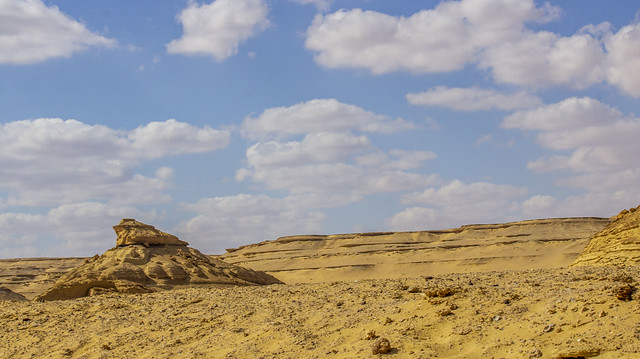 |
| Hilltops |
Now I forgot to tell you that Wadi El-Hitan comes top of Egypt’s eco-friendly sites and protectorates.
The International Union For Conservation of Nature (IUCN)’s conservation outlook for Wadi El-Hitan in 2020 was actually good, which is the highest level of praise in the World Heritage site.
 |
| The Fossil and Climate Change UFO building from the other side. |
Still, the IUCN stated that the site management unit still needs to develop a site-level plan for Wadi Al-Hitan within the main management plan document, including its own site maps.
I think this is truly needed.
I could not ignore the way back out of Wadi Hitan to Wadi El-Rayan
 |
| Welcome to the true desert way |
You can see the tracks of the 4x4 SUVs on the sand.
 |
| 4X4 tracks are your lead |
These can be your guide if your SUV does not have GPS.
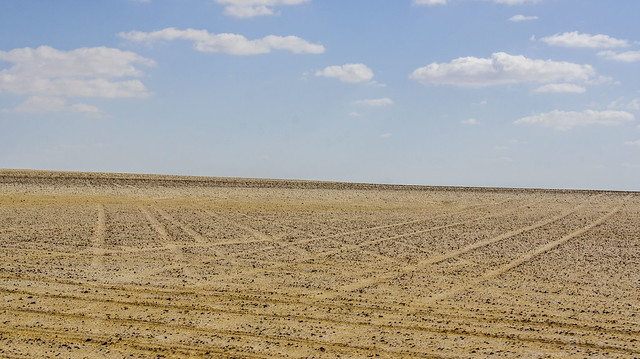 |
| Tracks coming and going in all directions |
Not to mention when I went in 2017, there was no mobile phone signal or 3G signal in the first area.
 |
| Hills and sands covered by iron quartz if I am not wrong |
Already I remember our SUV was an old 1980s Toyota, the favourite desert wagon in the Middle East. It had no GPS but it did not matter to our guide and driver.
 |
| Desert and hills |
Our guide was a local teen from the local Egyptian Arabian tribes in Fayoum who seemed to have gone on this trip so many times that he knew the way without maps or anything taking even a shortcut.
I hope he is okay.Now to one of the things, I loved on this trip.
 |
| A silky dune column |
I saw true dunes for real in the desert.
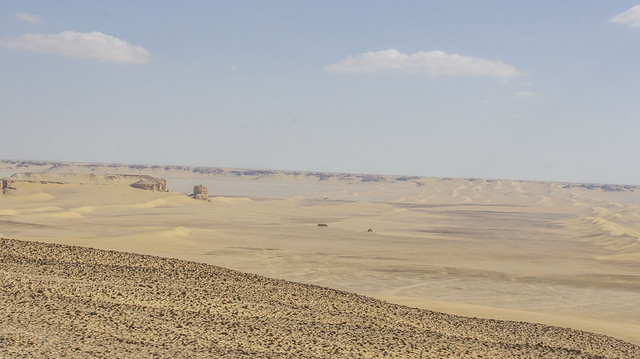 |
| Sand, hills and dunes |
We even went through the dunes including the truly big ones but I could not film it or take a photo because during then I was trying to balance myself.
 |
| soft silky sandy dunes as they were illustrated |
It was one hell of an experience but a beautiful exciting one indeed.
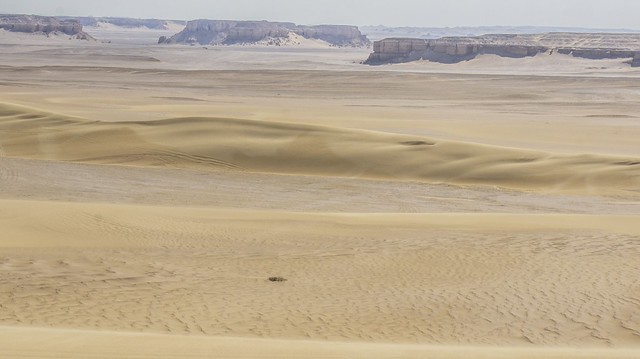 |
| On the track, while looking at the dunes and hills |
You can see how the road was like up and down in the sand.
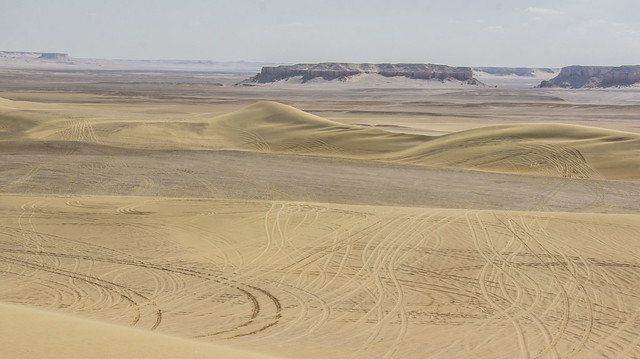 |
| Again tracks, dunes and hills |
I totally understand why Arabs in the Gulf like to do those desert trips.
 |
| Different strokes of sandy beige |
Different colours and strokes of natural colours.
 |
| Track on the dunes |
This was from one of the big dunes we came down from.
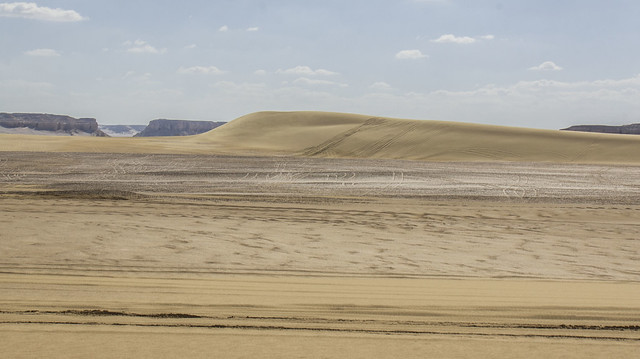 |
| A dune covering hills |
I just hope that the road is not modernized for real.
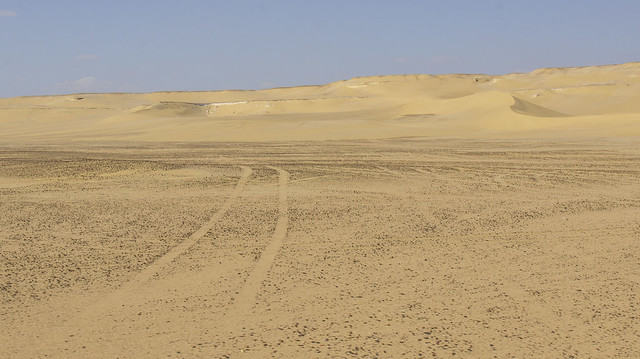 |
| Sand cover some limestone formation I believe |
I think sand is covering the limestone here.
 |
| Different degrees of sand here |
Hills, dunes and tracks in one shot.
 |
| Dunes of the Egyptian Fayoum desert |
Dunes and hills again.
 |
| The dunes hide the hills in some parts |
This shows how high the dunes cover the hills.
 |
| It looks like a photo taken from Mars if it had sands |
Needless to say, some of those photos reminded me of the photos coming from Mars exploration rovers.
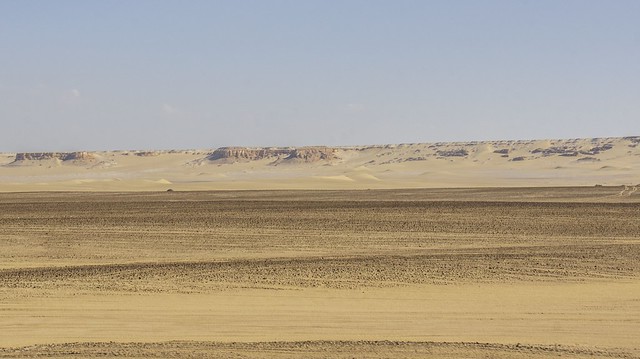 |
| back to hills and sands |
Especially this one.
 |
| That black colour is an indicator of iron quartz |
and that one.
 |
| That building far away is the Monastery of St. Makarius of Alexandria |
The building appearing from far away is the Monastery of the St. Makarius of Alexandria, a 4th-century Coptic Orthodox Christian monastery in the Wadi El-Rayan Protectorate.
That old monastery made it to the news when its monks stood in a standoff against the government over pieces of land and in the end, I think the government won the dispute.
It was already a stronghold for the disciples of Father Matta El-Meskeen who stayed there for decades. Already the famous and controversial figure in the Modern Coptic Egyptian Orthodox Church stayed for several years there in the 1960s.
It is just amazing how one protectorate in one part of Fayoum contains without a doubt.
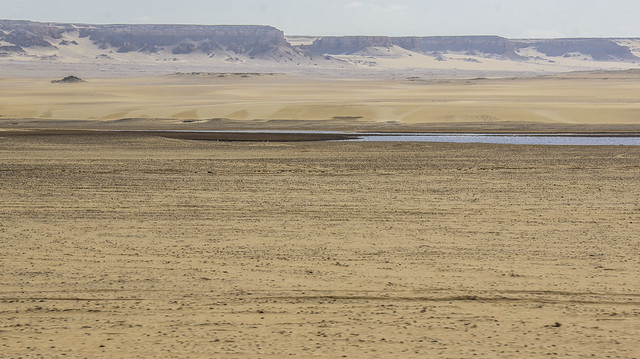 |
| One of the lakes at Wadi El-Rayan |
And we were back at the lake
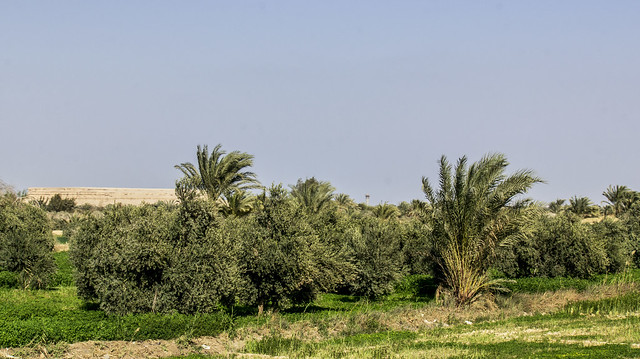 |
| Green bushes and palm trees |
Then to the greenery which was a sign that we left the desert and protectorate heading to the greenish fields of Fayoum and its villages as well as Lake Qaron and our hotel where we were staying.
That's not the end because there is still a shaky video coming on the way
I hope that inshallah I return back again to Fayoum because it turned out that I only scratched its surface.
It is a highly recommended place to anyone visiting Egypt for real so yeah, come and discover Fayoum. You won’t regret it.
Photos were taken by Sony Nex 5 with E-mount lens 18-55

No comments:
Post a Comment
Thank You for your comment
Please keep it civilized here, racist and hateful comments are not accepted
The Comments in this blog with exclusion of the blog's owner does not represent the views of the blog's owner.